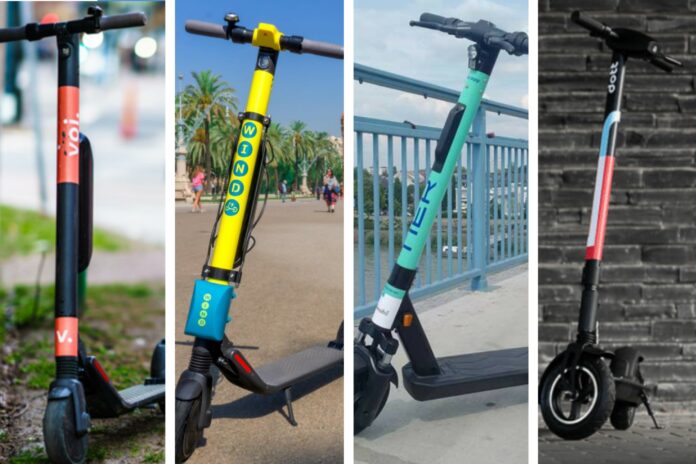After a banner 2019 of mega funding rounds for European e-scooter startups (Dott’s €29 million in July 2019, Wind’s €42.7 million in July 2019, Tier’s €55 million in October 2019, and Voi’s €73 million in Nov. 2019), the funding streak continued well into 2020 (Tier’s €34 million in February 2020 and Voi’s €26.3 million in July 2020). Observers and industry insiders remarked that e-scooter popularity and hype among investors were reminiscent of ride-hailing startups Uber, Lyft, Grab and Didi. When US-based e-scooter startups Lime and Bird were clearly gaining ground in Europe, with Bird acquiring EU e-scooter startup Circ in January of this year, European e-scooters were poised to defend their home turf and take on these “300-pound gorillas” with aggressive expansion plans and commitment to sustainable practices.
The Covid pandemic did halt the momentum, though, with most e-scooter operations becoming almost zero at the height of the pandemic in April until May, and Bird shutting down its Circ-run operations in the Middle East in June. Six months into the pandemic, there are clear signs of recovery and a turn-around as reported by Financial Times. Dott has remarked that their usage figures are back to pre-Covid days, Tier has cited that overall usage levels were similar to October of last year, Wind has embarked on a mobility campaign across Italy, while Voi added UK into their operations and usage is back to 50% compared to May. In July, the most coveted Paris tender was won by Tier and Dott along with Lime. The pandemic necessitated social distancing, and this has a corresponding effect on e-scooters, with longer ride duration observed by Tier and Lime as well more rides starting and ending in residential areas, a clear indication that e-scooters are being used for utility rather than for sight-seeing.
With all this hype and attention, we are wondering how do these European e-scooters really stack up against each other? Check out, our side by side comparison below and judge for yourself:

European micro-mobility via e-scooters
European e-scooter startups are just in their infancy, with most of them being 2 years old or less, and already gaining a lot of attention and funding. But will they play a significant part in European micro-mobility in the future?
Prior to e-scooters, ride hailing, and car sharing, European micro-mobility was dominated by bikes and more recently, e-bikes. Increased use of both e-bikes and traditional bicycles has been enhanced by major infrastructure improvements across cities in Europe which have all invested significantly to support alternative mobility solutions for consumers. And we are already seeing the same infrastructure being used by e-scooters.
In lots of cities across Europe, bike lanes and wider pavements can also be used by e-scooters. The ban on fossil fuel in European cities has also fuelled European micro-mobility. We are also seeing more players dive into the e-scooter bandwagon. Uber rival Bolt, which was re-branded from Taxify in 2019, delved into the e-scooter segment as early as 2018 in Paris and now has a fully operational Bolt e-scooter platform. Ford-owned Spin started its expansion into Europe in June. Lime, Bird and Uber, although US-based, have continued to make their presence felt in Europe. Additionally, CB Insights reports that by 2030, the shared micro-mobility market size worldwide could reach €257 to €429 ($300 to $500) billion and the European share is anywhere between €85 to €129 ($100 to 150) billion. This is not insignificant indeed!
It’s also worth mentioning that after the hard lock down in the UK, the British government has lifted their ban on using e-scooters in public places (roads, cycle lanes or pavements), to increase socially distanced methods of transport in urban areas. Trials of 12-months are currently being undertaken across multiple regions, with e-scooter startups like Voi, TIER and new-comers like Zipp Mobility and long-timers Beryl fighting it out for singular contracts.
It’s clear that e-scooters are here to stay along with the other means of alternative transportation. We can look forward to how they will contribute and define European micro-mobility in the future.




